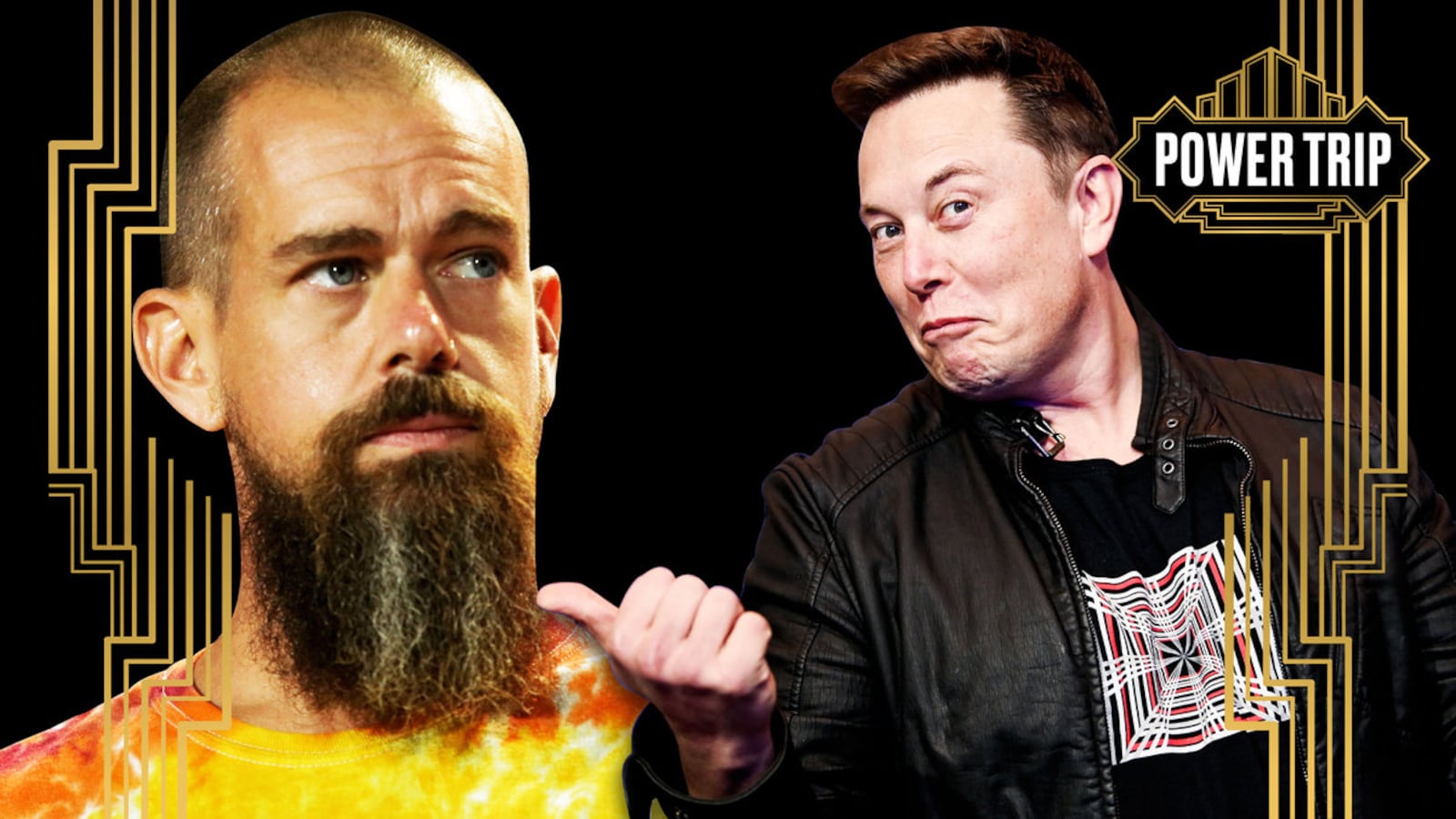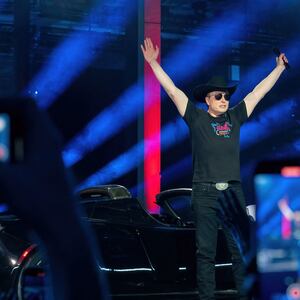He’s added a new Twitter bio—“romantic moron, 1/8th hippie”—trolled fellow billionaire Marc Benioff, and assailed the media for trying “to create conflict.” As he readies to leave the company’s board next month, Twitter co-founder Jack Dorsey is getting loose and ditching the filtered corporate-speak.
The 45-year-old Bitcoin evangelist resigned as the social media firm’s CEO in November, and his board term ends at its annual shareholders meeting in May. But he already appears to have lost interest in maintaining the veneer of corporate alignment.
Over the weekend, Dorsey chimed in on a Twitter thread to agree that bad executive boards destroy companies. “Big facts,” he wrote. His comments were timely, as Twitter has been stuck in repeated news cycles centering on its newest major shareholder, Elon Musk, who briefly appeared poised to join the company’s board earlier this month.
Dorsey had celebrated Musk’s planned appointment, though he has since signaled that he doesn’t believe “any individual or institutions should own social media.”
In the thread about Twitter’s board, Dorsey affirmed another comment from an apparent former company insider who said its board was “mired in plots and coups” during its early days.
“It’s consistently been the dysfunction of the company,” Dorsey wrote. A third user asked the billionaire if he was permitted to speak so openly. The answer was “no.”
On Monday, Dorsey again took aim at the company’s leadership, writing that he had “so much to say” about its dysfunction, “but nothing that can be said” out loud.
He expanded his critiques to targets outside of the company, too. When Salesforce founder Marc Benioff shared a self-congratulatory picture of himself on the cover of CEO Magazine, along with a caption blasting capitalism’s focus on “maximizing profits for shareholders alone,” Dorsey replied: “you bought this magazine too?” (Benioff and his wife, Lynee, purchased Time magazine in 2018; Benioff does not own CEO Magazine.)
He also energized right-wing and anti-media circles on Twitter this week, after retorting to a critique of Tucker Carlson’s new show relayed by CNN anchor Brian Stelter: “And you all are sharing hope?”
Dorsey later clarified that he wasn’t endorsing Carlson so much as “holding up a mirror” to the media’s tendency to promote inflammatory content. He claimed that while he was “on the streets of Ferguson,” Missouri—after the 2014 police shooting of Michael Brown—CNN journalists tried “to create conflict and film it causing the protestors to chant ‘fuck CNN.’”
Dorsey’s resignation last fall marked the start of a new chapter for Twitter. Though he has insisted he “wasn’t pushed out” of the company, he had previously faced a campaign in 2020 from the activist hedge fund Elliott Management to step away, since the firm argued that he was distracted by also running the online payments firm Square (now called Block).
“There aren’t many companies that get to this level,” Dorsey wrote in his resignation email to Twitter’s staff, which he also shared publicly. “And there aren’t many founders who choose their company over their own ego.”
Dorsey had previously served as Twitter’s CEO from 2006 to 2008, when he was ousted; he came back for a second term in 2015.
This month, the billionaire welcomed news of Musk’s plan to join Twitter’s board following an invitation from current CEO Parag Agrawal.
Then things went sideways. Musk informed the company on April 9, the day he was supposed to join the board, that he had switched course. That weekend he also sent a series of bizarre and confrontational tweets, including questioning whether Twitter was “dying” and suggesting that the company’s headquarters be turned into a homeless shelter (he later deleted the latter message).
Twitter has become so fearful of Musk’s provocations that it enacted a “poison pill” last week, which would make it more difficult for Musk to gain a controlling ownership interest; he currently holds a 9.2 percent stake.
Musk has hinted that he could still pursue a hostile takeover, though as always with the Tesla CEO, it’s hard to gauge his level of seriousness.
As for Dorsey, it remains to be seen how he fills the balance of his time after stepping away from the social media firm. He is still CEO of Block and has been aggressively preaching “the gospel of Bitcoin.” He has recently spent time surfing in Costa Rica, and his commitment to mindfulness and meditation is well documented.
Amid his acerbic tweets, Dorsey has also been spreading love. “Everybody stop and hug,” he wrote on April 12. He sent one virtual embrace to Mark Zuckerberg, another to billionaire venture capitalist Marc Andreesen, and another on Monday to commemorate the announcement of rapper Kendrick Lamar’s latest album.







